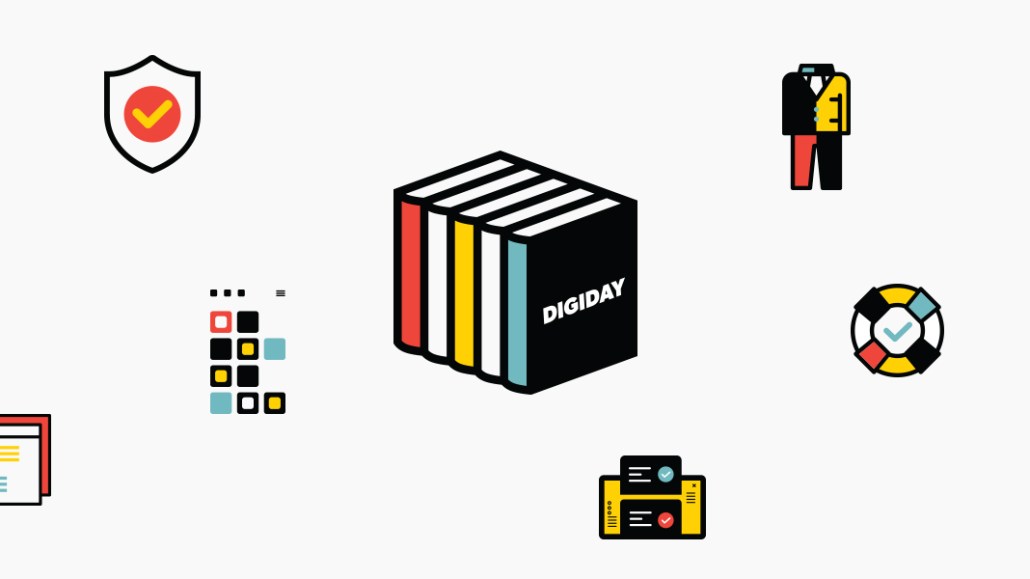Secure your place at the Digiday Media Buying Summit in Nashville, March 2-4

This article appears in the latest issue of Digiday magazine, a quarterly publication that is part of Digiday+. Members of Digiday+ get access to exclusive content, original research and member events throughout the year. Learn more here.
Meaningless jargon and lazy buzzwords have plagued the media and marketing industries for decades, and the problem only seems to be getting worse. With that in mind, we’re releasing the third edition of the Digiday Dictionary. Whether you’re trying to baffle someone into buying something they don’t need, decipher something your vendor told you, or simply cover up for having no idea what you’re talking about*, this guide will have you covered. (*Actual results may vary)
Ad exchange: Cheap ad space
Ads.txt: List of people we think we can trust
Agency of record: Scapegoat
Brand newsroom: Marketers with journalism degrees
Brand safety: Screenshots
Branded content: Native advertising that’s more expensive
Consent management platform: Something we say we use so we don’t get fined
Consultancies: Agencies with suits
Consumers: People
Data: Email addresses
Digital agency: Website sweatshop
Display: Banners
Engagement: Likes
Facebook Watch: Animal videos
GDPR: We’ve updated our privacy policy
In-house: Dedicated agency group
Long-form: 15 minutes, tops
Native advertising: Branded content
Pivot: Desperation
Podcast ad measurement: Discount codes
Premium video: Netflix
Privacy: An illusion
Publisher commerce: Amazon links
Social agency: Tweet sweatshop
Sponsored content: Text ad
Subscriptions: Last resort
Transparency: Insertion orders
Video audience measurement: A tax a publisher pays to take meetings with TV ad buyers
View views: Autoplay
Viewability: Bigger ads
More in Media

Media Briefing: Publishers explore selling AI visibility know-how to brands
Publishers are seeing an opportunity to sell their AI citation playbooks as a product to brand clients, to monetize their GEO insights.

Creators eye Snapchat as a reliable income alternative to TikTok and YouTube
Figuring out the Snapchat formula has been very lucrative for creators looking for more consistent revenue on a less-saturated platform.

In Graphic Detail: Subscriptions are rising at big news publishers – even as traffic shrinks
Publishers are raising prices, pushing bundles and prioritizing retention to make subscriptions a steady business amid volatile traffic.





